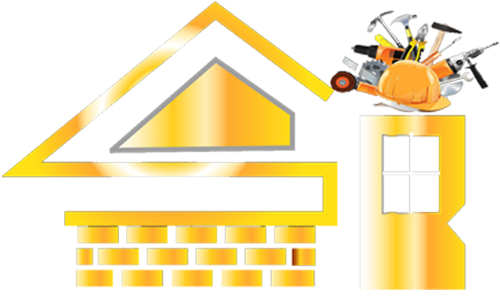Do you know which modified bitumen performs best in Brooklyn’s weather: SBS vs APP modified bitumen roofing?
Let’s dive in and explore. Brooklyn has cold, snowy winters and warm, humid summers with average temperatures of about 28°F to 84°F, rarely dropping below 15°F or rising above 91°F. That wide range means roofs must deal with both deep cold and hot heat.
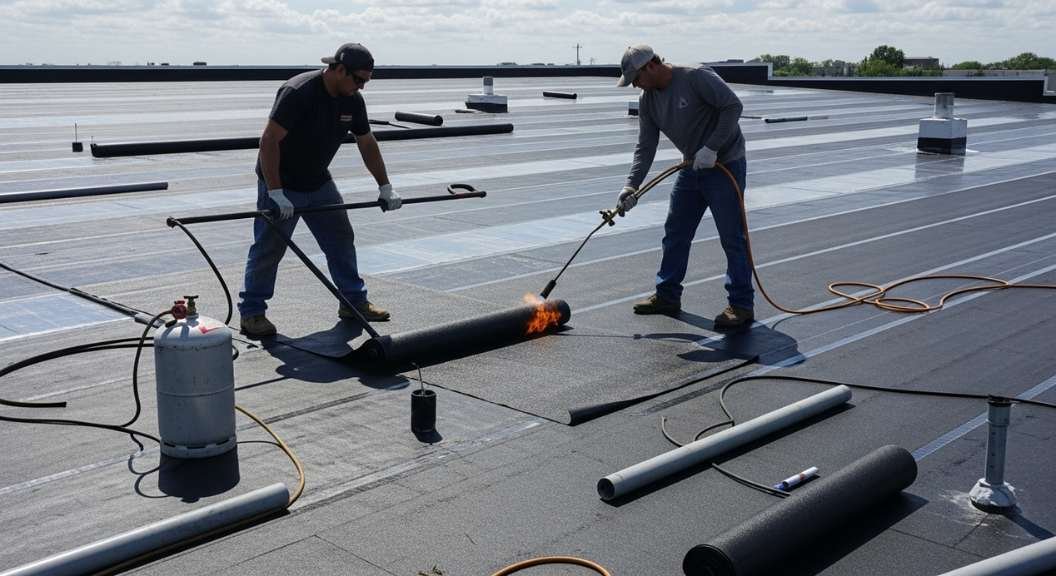
In this post, we’ll go over:
- 10 key performance differences between SBS vs APP modified bitumen roofing!
- How each handles Brooklyn’s changing seasons.
- Tips for choosing the right option for your project.
What are SBS and APP modified bitumen roofing?
SBS and APP are two kinds of polymer-modified asphalt sheets for flat or low-slope roofs. SBS adds a rubber-type polymer (styrene-butadiene-styrene) that boosts elasticity and low-temperature flexibility. APP adds a plastic-type polymer (atactic polypropylene) that boosts heat and UV resistance. Both come as reinforced membranes used in multi-ply systems for long service life.
10 Key Differences of SBS vs APP Modified Bitumen Roofing
Knowing the differences helps you match the roof to the climate and the building. It also helps you plan the right install method and repair path. Below, we highlight the major contrasts in clear, simple terms.
What polymer makes SBS vs APP modified bitumen roofing more flexible or rigid?
SBS (elastomeric)
- Very flexible in cold temperatures and when the weather changes from freezing to warming up.
- High elongation and recovery under stress.
- Strong flexibility in cold weather and through freeze–thaw cycles.
- Often paired with polyester or fiberglass reinforcement.
- Suitable for roofs that experience movement or frequent temperature fluctuations.
APP (plastomeric)
- Uses atactic polypropylene plastic in the asphalt blend.
- Higher softening range and strong UV resistance.
- A stiffer feel and greater dimensional stability in high temperatures.
- Common as smooth or granular cap sheets over a base ply.
- Suits hot, sunny regions and heat-exposed roofs.
How do SBS vs APP modified bitumen roofing respond under high temperatures and UV exposure?
APP easily tolerates intense sun and high heat. Its plastic polymer resists UV and holds form under hot conditions. SBS performs best when temperatures drop, and it stays flexible in cold snaps. In wide temperature swings, SBS handles contraction and expansion well. In long, hot seasons, APP keeps its surface stable and slows UV aging.
How do SBS vs APP modified bitumen roofing behave when torch-heated during installation?
APP softens and flows under a torch, which helps wet out and bond the laps. SBS turns tacky and “gooey” and needs careful heat control for full adhesion. Installers often check SBS adhesion by back-rolling and inspecting the bond line. Flame-free self-adhered sheets are available for both chemistries if a no-torch approach is needed.
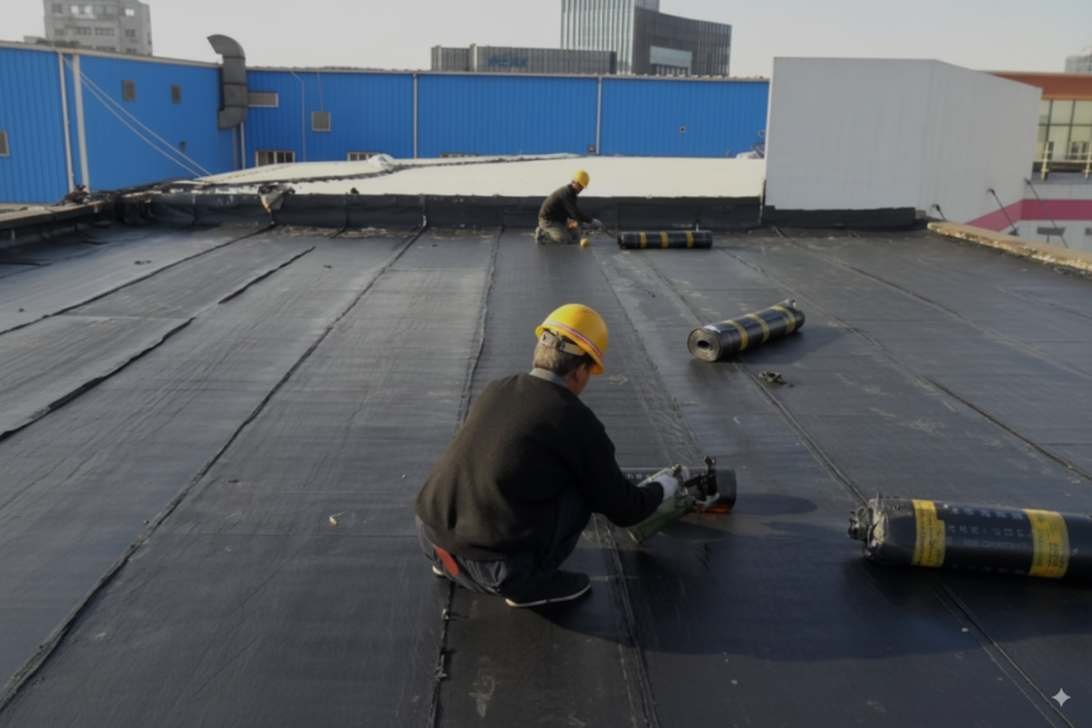
Which installation methods are available for SBS vs APP modified bitumen roofing?
| Membrane type | Common methods | Notes |
| SBS | Torch-applied; Hot asphalt; Cold-applied adhesives; Self-adhered; Mechanically attached | Broad method range supports many deck types and job sites. |
| APP | Torch-applied; Self-adhered (duel-compound SA); Cold-applied adhesives (select systems) | Torch is most common; self-adhered options avoid open flame; some makers allow cold processes. |
In which climates do SBS vs APP modified bitumen roofing perform best?
- SBS: Best in cold or mixed climates. The rubber modifier keeps the sheet flexible in freezing and thawing conditions. That helps stop cracking when the roof moves.
- APP: Best in hot, sunny climates. The plastic modifier resists heat and UV. That helps the sheet hold shape in long, hot summers.
- Brooklyn: Winters get very cold, and summers are warm and humid. The year ranges from approximately 28°F to 84°F, with rare exceptions. SBS fits that swing well. APP still works, yet it shines most in higher heat and stronger sun than Brooklyn sees.
What are the cost differences between SBS vs APP modified bitumen roofing?
Costs vary depending on roof size, number of plies, insulation type, access requirements, and local labor rates. The table blends national data with a system example.
| Cost type (per sq ft) | APP | SBS | Notes / Sources |
| Material cost | $0.70–$2.20 | $0.70–$2.20 | Typical national ranges for mod-bit materials. |
| Labor cost | $2.30–$4.00 | $2.30–$4.00 | Typical national ranges; method changes rate. |
| Repair cost | $2.50–$8.50 | $2.50–$8.50 | Torch-down repair averages per sq ft. |
| Installed cost (example: 2-ply recover, no new insulation) | $9.13 | $9.63 | System pricing shows SBS a little higher than APP. |
How long do SBS vs APP modified bitumen roofing membranes typically last?
Both can deliver approximately 20–30 years of service with proper design, installation, and care. Multi-ply systems offer extended service life compared to those with fewer plies. Some APP cap systems show BBA life expectancy over 35 years in specific assemblies. In cold climates, SBS flexibility can help preserve the membrane; in hot, UV-heavy zones, APP can age more slowly.
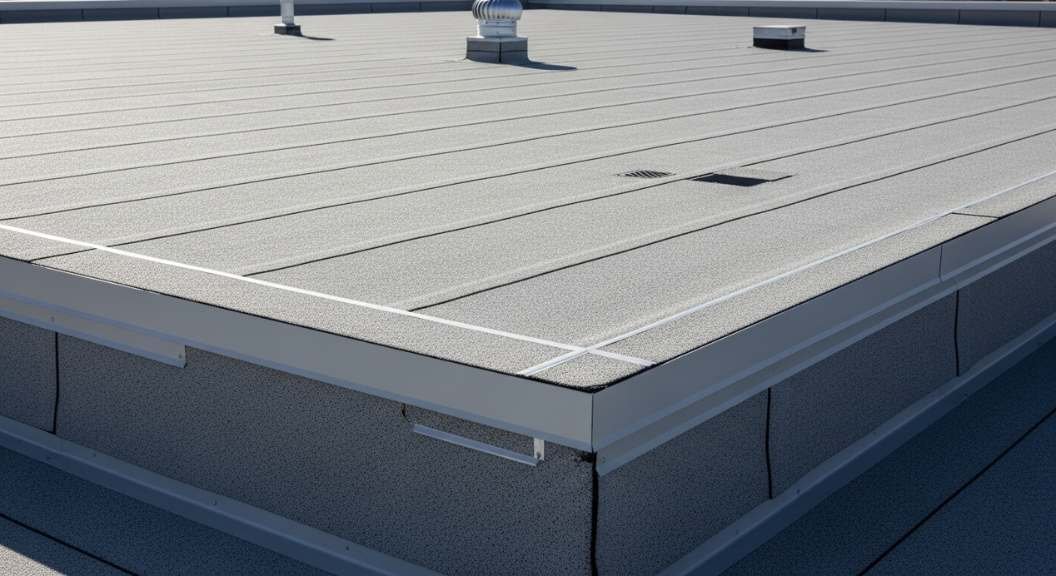
Which is easier to repair: SBS vs APP modified bitumen roofing?
SBS – common repair steps
- Clean the area and dry it fully.
- Cut and round a patch that overlaps 3–4 inches.
- Prime if required, then set the patch with cold adhesive or heat-weld according to specification.
- Roll the seam and check for full bond.
- Seal edges and inspect after cool-down.
APP – common repair steps
- Clean the area and dry it fully.
- Cut and round a patch with proper overlap.
- Torch-weld the patch to flow the plastomeric blend.
- Roll the seam and check for bleed-out per the maker’s guide.
- Seal edges and check for uniform fusion.
Result: SBS is usually easier to patch because it stays pliable and bonds well with cold adhesives or heat. APP repairs often rely on torch work and tighter heat control.
How do SBS vs APP modified bitumen roofing handle substrate movement?
| Factor | SBS (elastomeric) | APP (plastomeric) |
| Core behavior | Rubber-like elasticity | Plastic-like rigidity |
| Low-temp crack resistance | High | Moderate |
| Expansion / contraction cycles | Absorbs cycles well | Less tolerant of frequent cycles |
| Best fit | Buildings with movement or thermal swing | Stable decks in hot, sunny zones |
| Why | High elongation and recovery | Higher softening point and UV hold |
SBS is the flexible option for movement and cold snaps. APP is stable and resilient in high temperatures and direct sunlight.
Which type is faster and safer to install: SBS vs APP modified bitumen roofing?
| Step / Aspect | SBS | APP |
| Surface prep | Clean, dry, primed as needed | Clean, dry, primed as needed |
| Primary method | Torch, hot asphalt, cold adhesive, self-adhered | Torch or self-adhered are most common |
| Heat behavior | Turns tacky; does not flow like asphalt | Softens and flows for wet-out |
| Flame-free option | Wide SBS and APP self-adhered lines exist | Same; APP SA widely available |
| Seam finishing | Roll and check bond line; seal edges | Roll, check bleed-out; seal edges |
Result: Self-adhered systems are the fastest and safest for both, since they skip open flame. If using a torch, APP often runs quicker because it flows under heat. SBS offers the most method flexibility on complex jobs.
Which Performs Better in Brooklyn’s Weather
SBS performs better for Brooklyn overall because it remains elastic in cold conditions and during freeze–thaw cycles. Brooklyn’s climate ranges from approximately 28°F to 85°F, characterized by very cold winters and warm, humid summers.
APP is suitable for very hot, high-UV climates, so choose it only if your roof receives long, intense sun; otherwise, SBS is the safer option here.
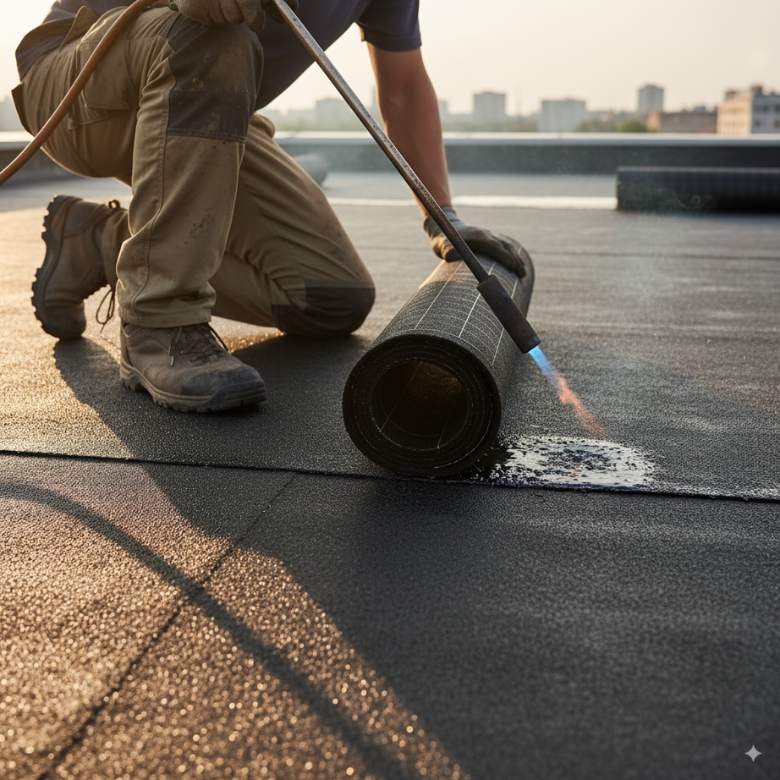
Why should you choose a professional roofing contractor?
Are you looking for an expert roofing contractor in Brooklyn, NYC? SR General Construction has you covered! Our business is located at 8807 Avenue B, Brooklyn, NY 11236, United States, in the Canarsie area.
We proudly serve all areas of Brooklyn with high-quality, durable roofing solutions. From new installations to repairs and maintenance, we provide the best service at affordable prices. Contact us and experience why we’re Brooklyn’s roofing experts!
FAQ
1. What is the core difference between SBS and APP modified bitumen?
SBS is rubber-modified asphalt that stays elastic. APP is plastic-modified asphalt that stays rigid and resists heat and UV.
2. Which performs better in hot or high-UV climates?
APP performs better in long, hot, sunny conditions because it resists UV and holds shape at higher temperatures. That is why many professionals pick APPs in hot regions.
3. How long does a modified bitumen roof typically last?
Well-built SBS or APP systems often last 20 years or more with proper maintenance. Industry guidance and contractor data support that range.
4. What does a modified bitumen roof cost per sq ft in 2025?
Recent guides indicate an average cost of $4–$8/sq ft for basic projects, with full assemblies costing higher by scope. Detailed system tables place a multi-ply mod-bit from $9 to $20/sq ft, depending on the number of plies and insulation.
5. Two-ply vs. three-ply: which lasts longer?
Three-ply systems generally last longer than two-ply systems under the same care. One cost study estimates about 25% longer life for three-ply.
6. What are the average softening points for SBS versus APP?
SBS blends typically soften at about 230°F, whereas APP softens at 245°F. The heat tolerance of APP is explained by that gap.
